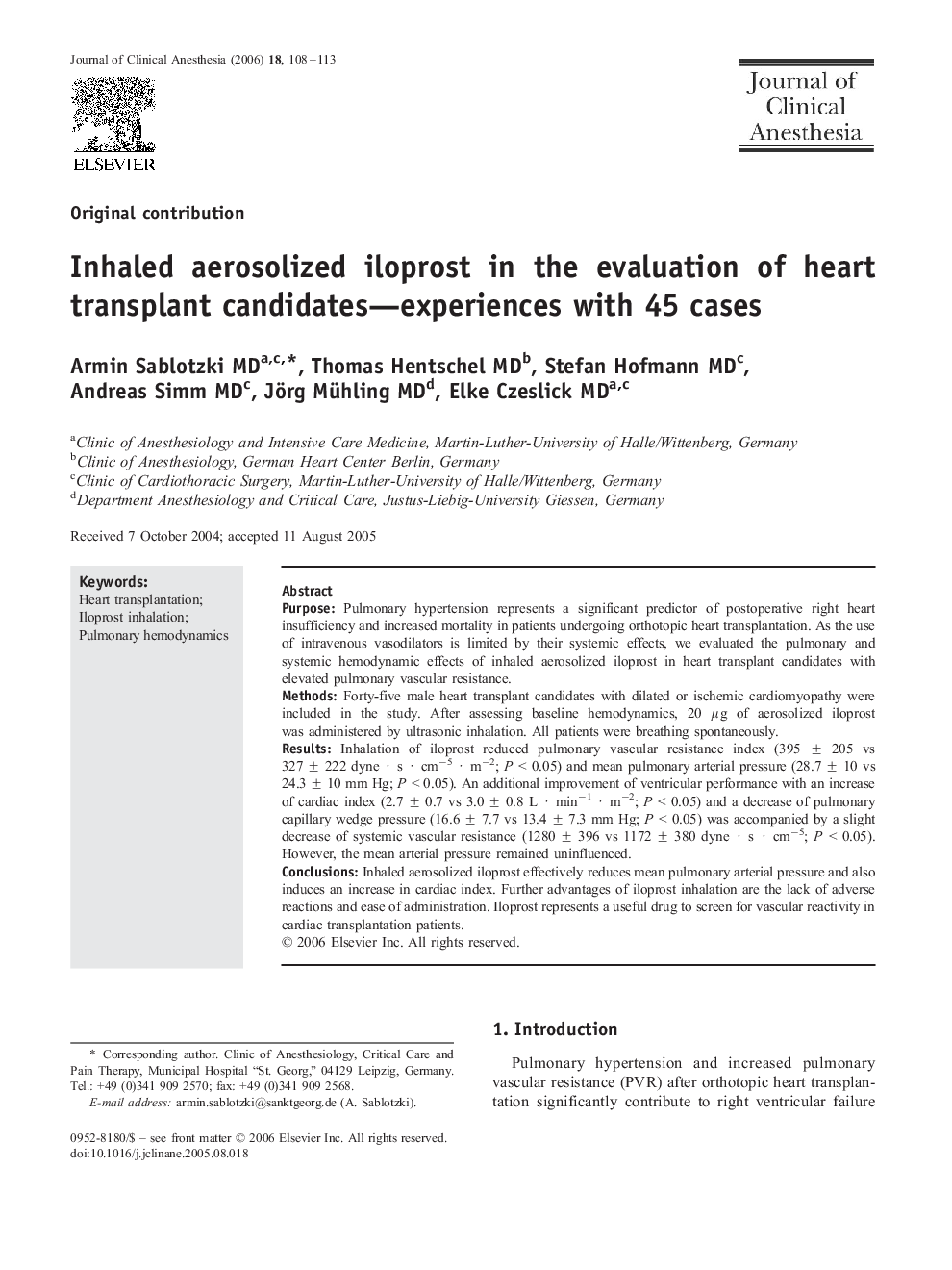| Article ID | Journal | Published Year | Pages | File Type |
|---|---|---|---|---|
| 2763995 | Journal of Clinical Anesthesia | 2006 | 6 Pages |
PurposePulmonary hypertension represents a significant predictor of postoperative right heart insufficiency and increased mortality in patients undergoing orthotopic heart transplantation. As the use of intravenous vasodilators is limited by their systemic effects, we evaluated the pulmonary and systemic hemodynamic effects of inhaled aerosolized iloprost in heart transplant candidates with elevated pulmonary vascular resistance.MethodsForty-five male heart transplant candidates with dilated or ischemic cardiomyopathy were included in the study. After assessing baseline hemodynamics, 20 μg of aerosolized iloprost was administered by ultrasonic inhalation. All patients were breathing spontaneously.ResultsInhalation of iloprost reduced pulmonary vascular resistance index (395 ± 205 vs 327 ± 222 dyne · s · cm−5 · m−2; P < 0.05) and mean pulmonary arterial pressure (28.7 ± 10 vs 24.3 ± 10 mm Hg; P < 0.05). An additional improvement of ventricular performance with an increase of cardiac index (2.7 ± 0.7 vs 3.0 ± 0.8 L · min−1 · m−2; P < 0.05) and a decrease of pulmonary capillary wedge pressure (16.6 ± 7.7 vs 13.4 ± 7.3 mm Hg; P < 0.05) was accompanied by a slight decrease of systemic vascular resistance (1280 ± 396 vs 1172 ± 380 dyne · s · cm−5; P < 0.05). However, the mean arterial pressure remained uninfluenced.ConclusionsInhaled aerosolized iloprost effectively reduces mean pulmonary arterial pressure and also induces an increase in cardiac index. Further advantages of iloprost inhalation are the lack of adverse reactions and ease of administration. Iloprost represents a useful drug to screen for vascular reactivity in cardiac transplantation patients.
